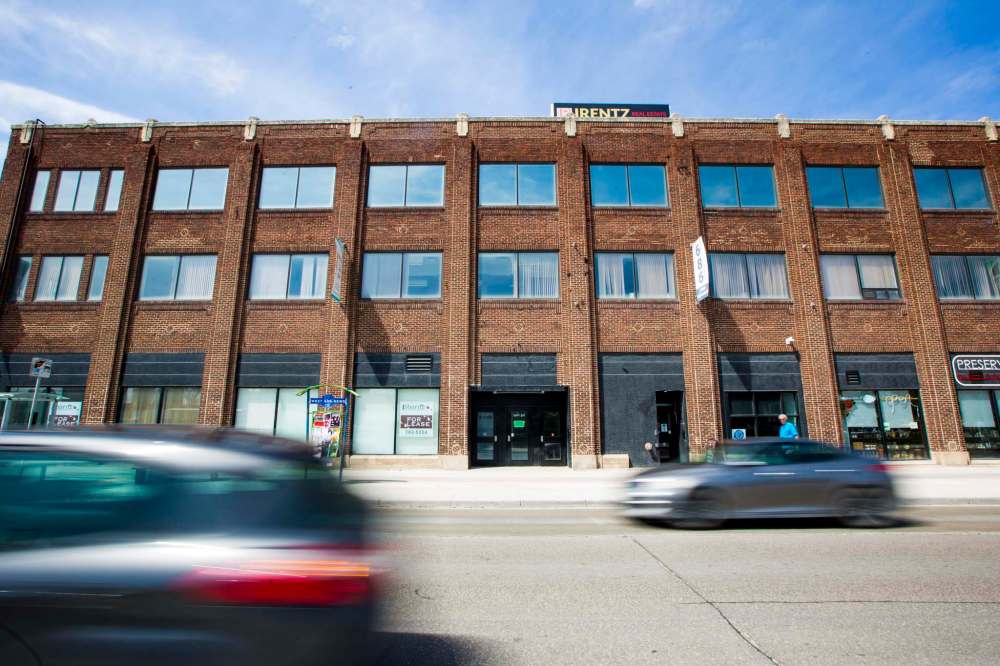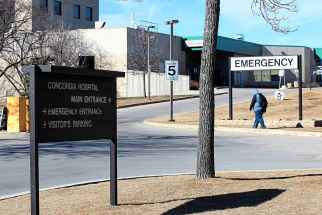Restorative justice centre turns attention to domestic violence cases
Read this article for free:
or
Already have an account? Log in here »
To continue reading, please subscribe:
Monthly Digital Subscription
$0 for the first 4 weeks*
- Enjoy unlimited reading on winnipegfreepress.com
- Read the E-Edition, our digital replica newspaper
- Access News Break, our award-winning app
- Play interactive puzzles
*No charge for 4 weeks then price increases to the regular rate of $19.00 plus GST every four weeks. Offer available to new and qualified returning subscribers only. Cancel any time.
Monthly Digital Subscription
$4.75/week*
- Enjoy unlimited reading on winnipegfreepress.com
- Read the E-Edition, our digital replica newspaper
- Access News Break, our award-winning app
- Play interactive puzzles
*Billed as $19 plus GST every four weeks. Cancel any time.
To continue reading, please subscribe:
Add Free Press access to your Brandon Sun subscription for only an additional
$1 for the first 4 weeks*
*Your next subscription payment will increase by $1.00 and you will be charged $16.99 plus GST for four weeks. After four weeks, your payment will increase to $23.99 plus GST every four weeks.
Read unlimited articles for free today:
or
Already have an account? Log in here »
Hey there, time traveller!
This article was published 21/05/2019 (2398 days ago), so information in it may no longer be current.
Manitoba’s centralized restorative justice centre has zeroed in on domestic violence, as it aims to divert more cases from criminal courts.
Probation orders would have been the criminal penalty for many of the individuals who are instead working with staff at the Winnipeg centre, which focuses on male and female domestic-violence offenders, according to documents released to the Free Press in response to an access-to-information request.
Individuals must admit responsibility to be eligible for restorative justice diversion. When they complete program requirements, their criminal charges are dropped.

Since most restorative justice centre employees are probation officers, the centre has been working to "slide the ruler" to get people involved in the programs they need sooner than if they went through criminal courts, the documents state.
In an interview, Shauna Appleyard, executive director of restorative justice and rehabilitation services for the community safety division of Manitoba Justice, said probation officers already have the expertise needed to work in restorative justice.
Since it opened in October 2017, the centre has been triaging cases police and Crown prosecutors recommend should be diverted out of the courts. Some are sent to organizations such as Onashowewin, the Salvation Army, and Mediation Services. Other cases are dealt with at the centre, which employs three probation officers, one community corrections worker and one manager.
"To increase capacity and also to focus on domestic violence, we realigned the probation officer skill set to it, so previously, probation caseloads in domestic violence would have been higher. We’ve been able to divert some and work with individuals sooner in the process," Appleyard said.
Data charting the progress the centre has made in its first year show 85 per cent of cases were successfully completed. From October 2018 to the end of December 2018, the successful-completion rate was about 51 per cent.

!function(e,t,s,i){var n=”InfogramEmbeds”,o=e.getElementsByTagName(“script”)[0],d=/^http:/.test(e.location)?”http:”:”https:”;if(/^/{2}/.test(i)&&(i=d+i),window[n]&&window[n].initialized)window[n].process&&window[n].process();else if(!e.getElementById(s)){var r=e.createElement(“script”);r.async=1,r.id=s,r.src=i,o.parentNode.insertBefore(r,o)}}(document,0,”infogram-async”,”https://e.infogram.com/js/dist/embed-loader-min.js”);
Statistics for 2019 haven’t been tabulated. Neither has data that tracks how many people go on to commit crimes after completing restorative-justice programs. Recidivism rates are tracked on a two-year basis, Appleyard said.
Restorative justice is a main part of the province’s plan to reduce Manitoba’s incarceration rates, which remain high, especially among Indigenous people.
The provincial government’s criminal-justice modernization strategy aims to increase the use of restorative justice, and about 5,000 cases were diverted to various programs over the past year. Meanwhile, the Winnipeg Police Service lays criminal charges in more than 2,000 domestic violence incidents per year, according to its most recent annual report.
Appleyard said clients who go through the restorative justice centre generally learn about healthy relationships and communication skills, and have group sessions to keep each other accountable.
"We have an open-door policy after the case is closed, where people can come back and continue to ask questions and receive supports, linking them with additional community supports," she said.
katie.may@freepress.mb.ca
Twitter: @thatkatiemay

Katie May is a general-assignment reporter for the Free Press.
Our newsroom depends on a growing audience of readers to power our journalism. If you are not a paid reader, please consider becoming a subscriber.
Our newsroom depends on its audience of readers to power our journalism. Thank you for your support.
History
Updated on Thursday, June 13, 2019 4:47 PM CDT: Capitalizes Mediation Services









